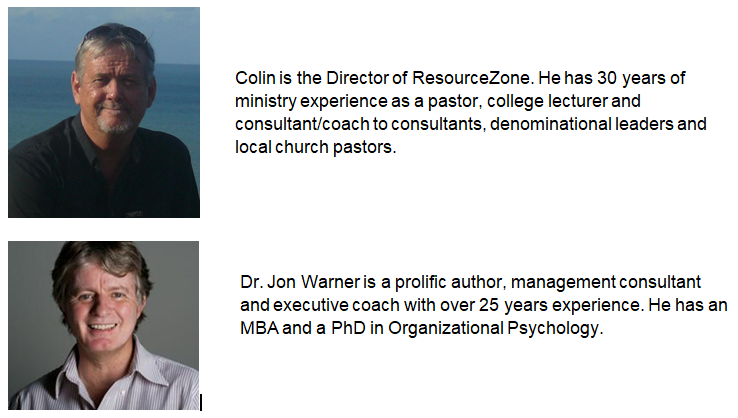 Introverts are getting a great deal of attention recently, in part due to Susan Cain’s popular book, “Quiet: The Power of Introverts.” In the past, introverts tended to be criticized as less, somehow in need of being “fixed” or “brought out of their shell” by extroverts. This perception may have arisen from lack of knowledge and is explored in this article by examining how introverts might best be coached as one factor among many in developing your coaching skill. First, we’ll tackle a few basic questions before moving on to specific coaching strategies.
Introverts are getting a great deal of attention recently, in part due to Susan Cain’s popular book, “Quiet: The Power of Introverts.” In the past, introverts tended to be criticized as less, somehow in need of being “fixed” or “brought out of their shell” by extroverts. This perception may have arisen from lack of knowledge and is explored in this article by examining how introverts might best be coached as one factor among many in developing your coaching skill. First, we’ll tackle a few basic questions before moving on to specific coaching strategies.
What is an introvert?
According to Carl Jung, the psychologist who defined the terms introversion and extroversion, Introversion is all about drawing energy from the internal world of thoughts and ideas, preferring depth and pausing for thought. Jung would say that the unconscious preoccupation of introverts is therefore privacy. Extroversion, on the other hand, is about drawing energy from the world of people, things, and activities, and dealing in breadth rather than depth. Introverts tend to focus on their own inner world of ideas and experiences. They direct their energy and attention inward and receive energy from their internal thoughts, feelings and reflections. They tend to enjoy quiet for concentration and do not mind working on one project for a long time. They usually prefer working alone and develop their ideas through reflection.
So, in summary, people who prefer introversion are likely to:
- Be mainly private and contained
- Enjoy being calm and “centred” or reserved (preferring reflection in general). This means they tend to reflect before acting or speaking
- Feel comfortable being alone and like solitary activities
- Prefer fewer, more intense relationships socially (and may need time to recover from heavy socialising)
- Sometimes spend too much time reflecting and may not move into action quickly (usually wanting to understand things thoroughly before acting)
- Often like quiet space in which to work or concentrate
- Sometimes forget to check with the outside world to see if their ideas really fit their experience (as they are drawn to the inner world of thoughts and ideas)
How does an introvert generally relate to the world?
Quiet people may be introverted but this is not always the case, as extroverts can be quiet for a short period and some introverts can adopt more extroverted and non-quiet behaviours for a period. We can tune into the language that introverts tend to use to get a better idea of when individuals may have a greater preference for introversion. Hence, we might hear statements such as:
- “I have to reflect on that” (although they may just do this and say nothing!)
- “I have had one or two close friends most of my life.”
- “I can usually concentrate/focus pretty well.”
- “I prefer not to make speeches/presentations/talking in public.”
- “Let me think about it and I’ll have an answer for you tomorrow.”
- “I’d rather do it on my own.”
Outside of observing language clues we might also see the following general behaviours:
- Often require a lot of time alone (but can also tune out very effectively and hence be alone in a crowd).
- Dislike interruptions.
- Can’t be easily pressured into talking about an issue until ready (may take quite a long time).
- Often intense and passionate even though it may not show it, seeming to take life very seriously.
- Must generally understand a thing before trying it.
- Generally think carefully before speaking or acting.
- Often very good listeners.
- Generally dislike small talk.
Coaching the introvert
Now that we have understood more about introverted preferences, let’s turn our attention to how best to coach an introvert. Perhaps the best place to start is to look at the kind of frustrations and/or goals that introverts are likely to have in the ministry situation. Below are nine of the most common ones:
1. A wish to boost overall ability to interact (often confused with external show of confidence and self-esteem) –introverts (and not exclusively of course) may suffer from low self-esteem where they have become over-introspective and/or when they have lost confidence in their inner means to cope with their ministry environment. A coach may therefore need to help them to develop greater confidence often by getting them to give more of their assistance and advice to others.
2. A wish to contribute more in important discussions and/or decisions – Extroverts may well become impatient with introverts in significant discussions when important decisions have to be made, especially when time is pressing so an introvert may feel unheard or sidelined. However, introverts can typically be much more effective in difficult problem-solving situations and when complex issues need to be thought through. A coach can help in getting introverts to better promote these skills as a key step in important discussions or before key decisions are made.
3. A wish for a greater connection to others – Introverts can feel incompetent or unskilled in communicating and connecting with others (despite their need to spend time alone to think and reflect on a regular basis). A coach may therefore need to help them to develop approaches to connect with other people.
4. A wish to overcome apparent shyness (at least to some degree) – Shyness may be a sign of introverts with under-developed social skills and/or under-developed sense of self. There is a huge difference between an introvert who requires quiet time and an introvert who avoids people wherever possible. The former is taking necessary time and keeping his or her energy “battery” charged whereas the latter is being avoidant and potentially not helping him or herself and the rest of the team they are a part of. A coach may therefore need to help an introvert to develop the ability to enjoy limited socializing that is comfortable for the introvert’s overall temperament.
5. A wish to be less “perfectionistic” at times – Most introverts want to be in a place where their thinking is as near perfect as possible. But if this goes too far and the perfectionism may negatively impact them and others and create a sense of slowing things down unnecessarily. Coaching can help here by providing a more objective perspective on the introvert’s introspection and by identifying a way of being at least somewhat more pragmatic when time and circumstances demand it.
6. A wish to deal more effectively with the dominance of extroverts – Most introverts see extroverts to be more assertive and even pushy, confident (perhaps overly so) and prone to jump-around a lot. This approach often puts them “in-charge” of tasks and projects even if they are not the official leader. This can be irritating to an introvert and may lead to withdrawal and watching the extrovert dig his or her own grave. A coach therefore needs to work with the introvert to find common ground with the extrovert by getting information to them in different ways -such as ahead of time in writing or quietly on a one-on-one basis after a discussion.
7. A wish to work more effectively in the fast-paced work climate that is often required – Today’s environment often requires people to deal with difficult situations to achieve a specific outcome. A coach can work with an introvert to help develop different ways to contribute to meeting the pressure of an outcome, or sometimes show why changing a deadline (to allow for deeper thinking perhaps) may create a better result.
8. A wish to promote their own agenda and needs – While an extrovert will not be slow at putting him or herself forward, the introvert may find self-promotion to be extremely difficult. Here a coach can work with an introvert to prepare for important issues and contributions that need to be made.
9. A wish to put themselves forward strongly enough to lead teams – Introverts will put themselves forward for roles they think they are capable of doing but may not see themselves to be the type of leader that is required. A coach can therefore work with an introvert to increase confidence in his or her own ability and promote strategies for leadership that are a comfortable fit for his or her temperament.
And finally, how should an introvert relate to his or her coach?
If an introvert is dealing with an introverted coach, then there may be a more comfortable relationship. However, even here the coach may be pushing quite hard towards outcomes. Where the coach is an extrovert, this pushing may be even more apparent, and it is therefore up to the introverted person to play his or her part in managing the relationship to get the most from the experience. Here are a few ways in which the introvert can really buy into the process (as a coach consider giving this list to the person being coached):
- Always bring a notepad/journal to a coaching session – take notes and keep a record of thoughts/feelings for yourself.
- Ask your coach for direct and candid feedback.
- Speak up when you need more time to reflect on what has been asked of you or when a subject warrants it, or when you have a more important concern to discuss.
- Specifically let your coach know when you are starting to share your private views–the ones that you keep to yourself in usual circumstances.
- Let your coach know if you are not comfortable in sharing some information or you prefer not to answer a question that has been put to you.
- When working with a highly extrovert coach be prepared to apply a metaphorical “hammer” from time to time to get his or her attention.
- After your coaching session, keep a running record of brief notes on what you thought, after you have had time to ponder things – write down what you are learning.
- Make a list of new questions or issues and bring it with you to your next coaching session.
- Try to be as willing as possible to attempt something new or different that you may not otherwise consider. Small stretch tasks will eventually help to make bigger stretches.
- When being coached talk to new people and build new relationships as you become comfortable in doing so– start with other introverts. Relate the experience to your coach.
- Take the whole coaching journey step-by-step and let things unfold as slowly as you like. Your coach works at your pace, you do not have to work at theirs.
Summary
Introverts have much to bring to any ministry situation. In general they are more effective than extroverts at focusing or concentrating on important issues, thinking deeply about them and coming up with new, different or well thought through ideas often noticing or picking up important details that extroverts may miss entirely. They may need a little more time and space to perform this role, and may need assistance in teasing out their ideas, but results usually make this extremely worthwhile. The more extroverts become knowledgeable about introverts the less tension and misunderstanding there will be among the two. To summarize, if you don’t know what an extrovert is thinking you haven’t been listening but if you don’t know what an introvert is thinking, you haven’t asked.




Comment here